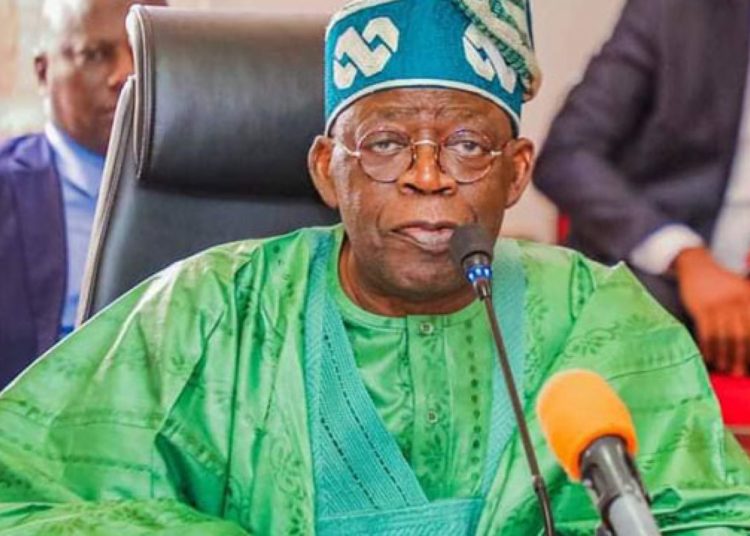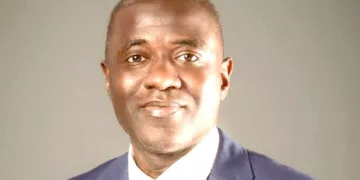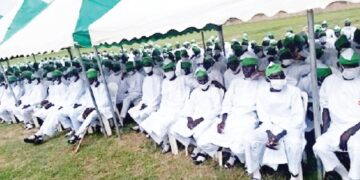The suspense, intrigues and backstabbing that characterised the process leading up to the Presidential primaries was strong enough to create conditions of cardiac arrest amongst even the strongest of Asiwaju’s supporters.
The apprehension was not so much in the fact of whether or not Asiwaju would emerge winner as it was on the ploy of forces to produce a consensus candidate, thereby rendering the contest a mere ceremony, where the establishment candidate would have been announced.
In the end Tinubu won the primaries. But what stood out very clearly was that he won the primaries without the consummate support of the South-South. That is, Tinubu would still have won without the meager votes he got from the South-south states.
Whereas we still await a factual breakdown of how the states voted, it may be safe to aver that Tinubu may not have gotten up to 20% of votes from each of the south-south states, except Akwa Ibom state and Edo state.
While it may be argued that former Rivers State Governor, Rotimi Amaechi, who came second at the primaries, may well have been the main recipient of the south-south votes, truth still remains that like in the south-east, the All Progressives Congress, APC, has to look critically on how she can improve electorally in the south-south.
This point appears more important now as the possibility of a Muslim-Muslim ticket seems the surest way to victory come 2023.
Irrespective of the pros and cons disposition to a muslim-muslim ticket, the very reality of such a ticket may throw up the assumption that the APC does not reckon with the south south and southeast.
Yet again these fears may hold no ground if indeed all the APC requires from these two zones is to score at least 25% of votes cast. But wouldn’t it better to aim for an outright win, so even if we fail, we finish very strong?
Fact is, Edo state was the only south-south state that the APC ran neck to neck with the PDP in the 2019 presidential election. APC scored 47.77 while the PDP scored 49.17 percent of votes cast.
In Akwa Ibom the APC garnered 30.31 against PDP’s 68.39, Cross River, APC scored 27.80 against PDP’s 70.10, in Delta, APC got 26.67 against PDP’s 71.59, in Bayelsa, APC got 36.93 against PDP’s 61.51 and in Rivers, APC got 23.47 against PDP’s 73.81 percentage votes.
Of the five southeast states, the APC only managed to score 25% in three states. While it got 26.31 against PDP’s 67.96 in Abia, it scored a paltry 5.50 against the PDP’s 86.63 in Anambra. While the APC got 25.26 in Ebonyi, the PDP scored 72.00. in Imo the APC got 27.46 against PDP’s 65.47. In Enugu, the APC got 12.93 while the PDP got 84.45 percent of votes cast.
While the arguments can be made that the political equation has since changed in one or two of the south-south and south-east states and that Tinubu, not Buhari is on the 2023 ticket, the very fact of the possibility of a muslim-muslim ticket, re-emphasizes the need for a new strategy.
There is more. It seems foolhardy to celebrate the cross carpeting of one, two or three governors in these regions as a fait accompli. The fact that these governors are completing their two terms means they actually have little to offer in so short a time, as far as tilting the balance from a prolonged voting pattern, as the statistics show.
The APC must face the emerging realities that may shape the 2023 elections. It must not be derisive in dismissing the angst of these regions in missing representation on the presidential ballot. Whereas the north may be the battleground, these regions may very well become the deciders.
There is a strategy to be applied. But first, the APC needs to proceed with a mindset that it can win these regions. It must dutifully seek out grassroots mobilizers in these regions as opposed to romancing big name elements motivated only by the needs of their pockets and future offices.
It must also evolve a new mode of election funding as opposed to what transpired at the primaries, where funding was structured outside the know-how of middle manpower, who in the main, remain the real link to the grassroots mobilizers.
As the National Coordinator of what has now emerged as a major support group for the Asiwaju project, you would please excuse me if I hold out a little on what we consider a fulsome strategy that will take us to the Villa come 2023.
But believe me. APC can take or make major in roads to the south south and southeast. It is possible.





